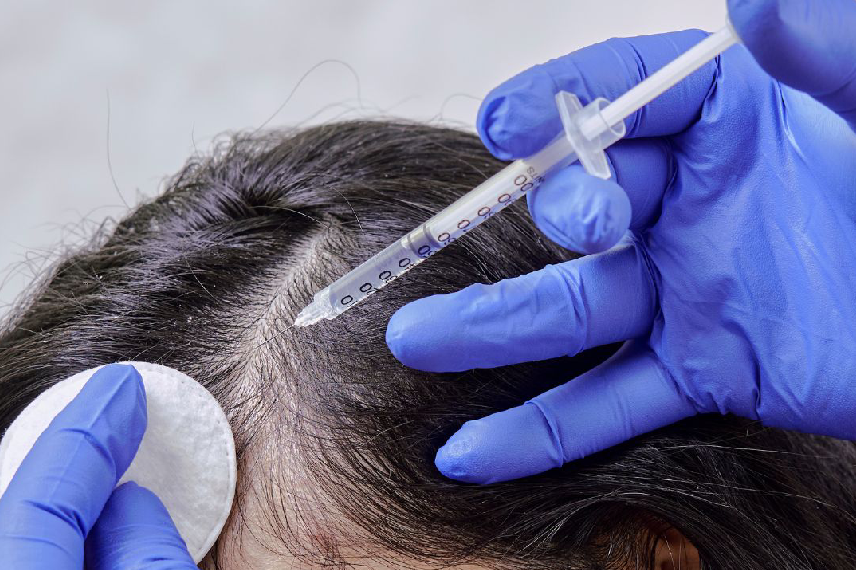
Mesotherapy for hair is a non-surgical treatment that involves the injection of a combination of vitamins, minerals, amino acids, and other nutrients directly into the scalp. These injections aim to stimulate hair follicles, promote hair growth, and prevent hair loss by addressing various underlying causes such as poor circulation, hormonal imbalances, and nutrient deficiencies.
Mesotherapy for hair offers several benefits beyond just promoting hair growth. By improving blood circulation in the scalp, it helps to increase the delivery of oxygen and nutrients to the hair follicles, which is essential for healthier hair production. Additionally, the injected growth factors and vitamins work synergistically to combat the effects of hair thinning, strengthen existing hair, and prevent further hair loss. The treatment also helps to address issues like dandruff, dryness, and scalp inflammation, all of which can contribute to unhealthy hair growth. Over time, mesotherapy helps rejuvenate the scalp, creating a more fertile environment for hair to grow.
One of the key advantages of mesotherapy is its ability to be customized according to an individual’s specific needs. Different patients may experience hair loss for various reasons, and mesotherapy can be tailored to target the underlying causes, whether it's stress, hormonal changes, nutritional deficiencies, or genetics. The procedure is generally well-tolerated with minimal downtime, making it a convenient option for those who want to restore hair growth without the need for invasive surgeries. Multiple sessions may be required to achieve optimal results, but many patients begin to notice improved hair thickness and reduced shedding after just a few treatments. For those looking to prevent future hair loss or stimulate regrowth, mesotherapy is a safe, effective, and non-invasive solution.
A dermatologist or trichologist evaluates your hair condition to determine the treatment plan.
There's usually minimal downtime, and you can return to your daily activities. Some redness or swelling at the injection sites may occur, but it typically subsides within a few hours.
